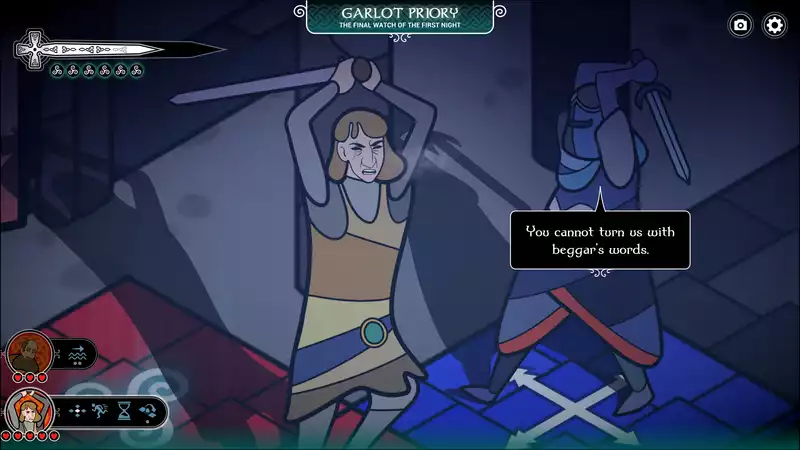I've lost count of how many times I've seen the ending in Pendragon, the latest from 80Days creator Inkle. The story follows King Arthur as he gathers his warriors and heads to the battlefield of Camlann to help him defeat his nemesis, the evil Mordred. But what happens on the dangerous and winding road to this fateful encounter is different every time. The characters you meet, the places you explore, and the enemies you encounter are highly random, making for dynamic and unpredictable storytelling.
Pendragon is a narrative roguelike based on Arthurian legend. Knowledge of the mythology would have helped to advance the story, but I had little knowledge of it and felt that I could have been brought into the game world better. The story begins after the fall of the legendary Round Table. Camelot has fallen and Arthur's allies are scattered. That's where you come in. You choose one of several playable characters and venture across Britain to help Arthur.
The problem here, however, is that you will fail again and again. He dies many times on the road to Camlann. And when you finally get to battle, one of Mordred's powerful knights may knock you out cold. But defeat in "Pendragon" does not feel like game over. Rather, it is like the last page of a particularly grim picture book. You close the picture book, pick another one off the shelf, blow the dust off the cover, and hope that Arthur's friends will have more success with this one. Failure is frustrating in "Pendragon," but the path to that failure is almost always interesting.
The game is distinct from Inkle's previous works in that it is a turn-based strategy game. The game consists of a series of gridded boards, represented as ruined castles, shadowy forests, and ancient standing stones, the edges of which are reached as you approach your final destination. At times, one can move through the boards unopposed, encountering solicitable allies, chatty villagers, and moments of evocative worldview. But enemies, such as territorial wolves or Mordred's loyal soldiers, often stand in the way. While on the move, one can "paint" the board and gain ownership of the squares one touches, allowing one to move faster.
What I like about Pendragon is that there is no real separation between strategy and story. While you are moving and fighting, the plot unfolds naturally on the board. Heroic sacrifices and sudden deaths have a major impact on other characters and may unlock one of the game's many special moves, such as rushing across water tiles, jumping over blocked squares, or defeating multiple enemies in a row. However, I would be lying if I said that all the stories are compelling. My party, ambushed by a giant snake in a swamp and killed easily, would not be the stuff of legends or campfire stories. Pendragon is tough even on the lowest difficulty setting.
You may bump into a playable character, such as the cruel witch Morgana Le Fay or the crude Sir Kay. Which character you choose will color the story, and each has a distinctive personality and way of speaking. Some also have unique powers, such as Morgana's ability to tame wild animals. The starting board for each hero is always the same, establishing their place in the world and the motivation for their journey to Kamran. After that, however, the randomizers take over, and there is no telling what twists and turns the story will take along the long road ahead.
Compared to the generously descriptive "80 Days," "Pendragon" is a sparse piece of work with brief, terse dialogue. Frankly, I was a bit disappointed at first. Over time, however, I have come to accept that the game's greatest storytelling tool is not its prose, but its systems and how they interact. This game is the most replayable of Inkle's games. Every story, even if it wasn't particularly good, would be completely different. It is quite simplified for a strategy game, but the way it seamlessly combines story and play is clever. The Arthurian legend has been told and retold countless times.
.

Comments